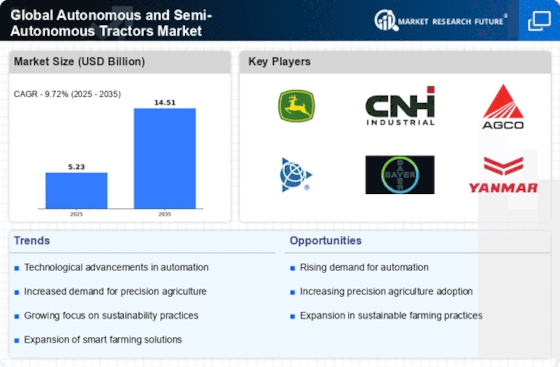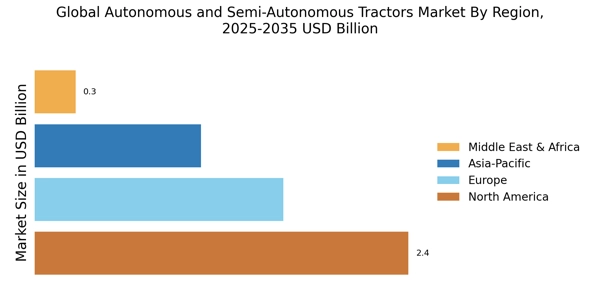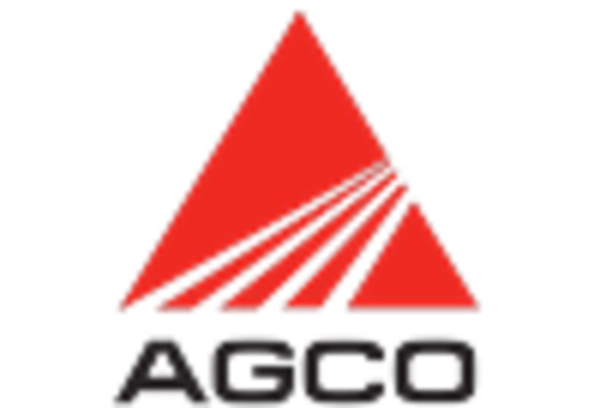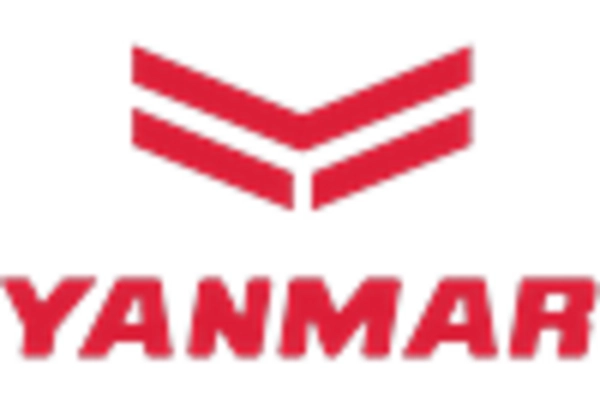Labor Shortages in Agriculture
Labor shortages in the agricultural sector are significantly influencing the Global autonomous and semi-autonomous tractors Market. As the workforce in agriculture ages and younger generations show less interest in farming careers, the demand for automation solutions is rising. Autonomous tractors can operate with minimal human intervention, thus addressing the labor gap while maintaining productivity levels. Current data suggests that the agricultural sector could face a labor shortfall of over 1 million workers by 2030. This situation compels farmers to invest in autonomous technologies to ensure operational continuity and efficiency, thereby driving market growth.
Rising Demand for Food Production
The escalating global population and the corresponding demand for food are driving the Global Autonomous and Semi-Autonomous Tractors Market. As food production needs increase, farmers are compelled to adopt more efficient farming practices, which include the use of autonomous tractors. These tractors enable higher productivity and can operate around the clock, thus maximizing output. Projections indicate that food production must increase by 70% by 2050 to meet global demands. This urgent need for enhanced agricultural efficiency is likely to accelerate the adoption of autonomous technologies, positioning them as essential tools for modern farming.
Technological Advancements in Automation
The rise of advanced technologies such as artificial intelligence, machine learning, and sensor technologies is driving the Global Autonomous and Semi-Autonomous Tractors Market. These innovations enhance the operational efficiency of tractors, allowing for precision farming and improved yield. For instance, the integration of GPS and IoT technologies enables real-time data collection and analysis, which optimizes farming practices. As of 2025, the market for autonomous tractors is projected to grow significantly, with estimates suggesting a compound annual growth rate of over 20%. This growth is indicative of the increasing adoption of automation in agriculture, as farmers seek to reduce labor costs and improve productivity.
Sustainability and Environmental Concerns
The growing emphasis on sustainable farming practices is a key driver for the Global Autonomous and Semi-Autonomous Tractors Market. As environmental regulations become more stringent, farmers are increasingly turning to autonomous tractors that minimize soil compaction and reduce fuel consumption. These tractors often utilize alternative energy sources, such as electric or hybrid systems, which align with global sustainability goals. Reports indicate that the adoption of such technologies can lead to a reduction in greenhouse gas emissions by up to 30%. This shift not only addresses environmental concerns but also appeals to consumers who are increasingly favoring sustainably produced agricultural products.
Increased Investment in Agricultural Technology
Investment in agricultural technology is a crucial factor propelling the Global Autonomous and Semi-Autonomous Tractors Market. Venture capital and government funding are increasingly directed towards innovative agricultural solutions, including autonomous tractors. This influx of capital supports research and development, leading to the introduction of more advanced and efficient tractor models. As of 2025, it is estimated that investments in agri-tech could exceed 10 billion dollars annually, reflecting a strong commitment to enhancing agricultural productivity through technology. This trend not only fosters innovation but also encourages wider adoption of autonomous solutions among farmers.

















